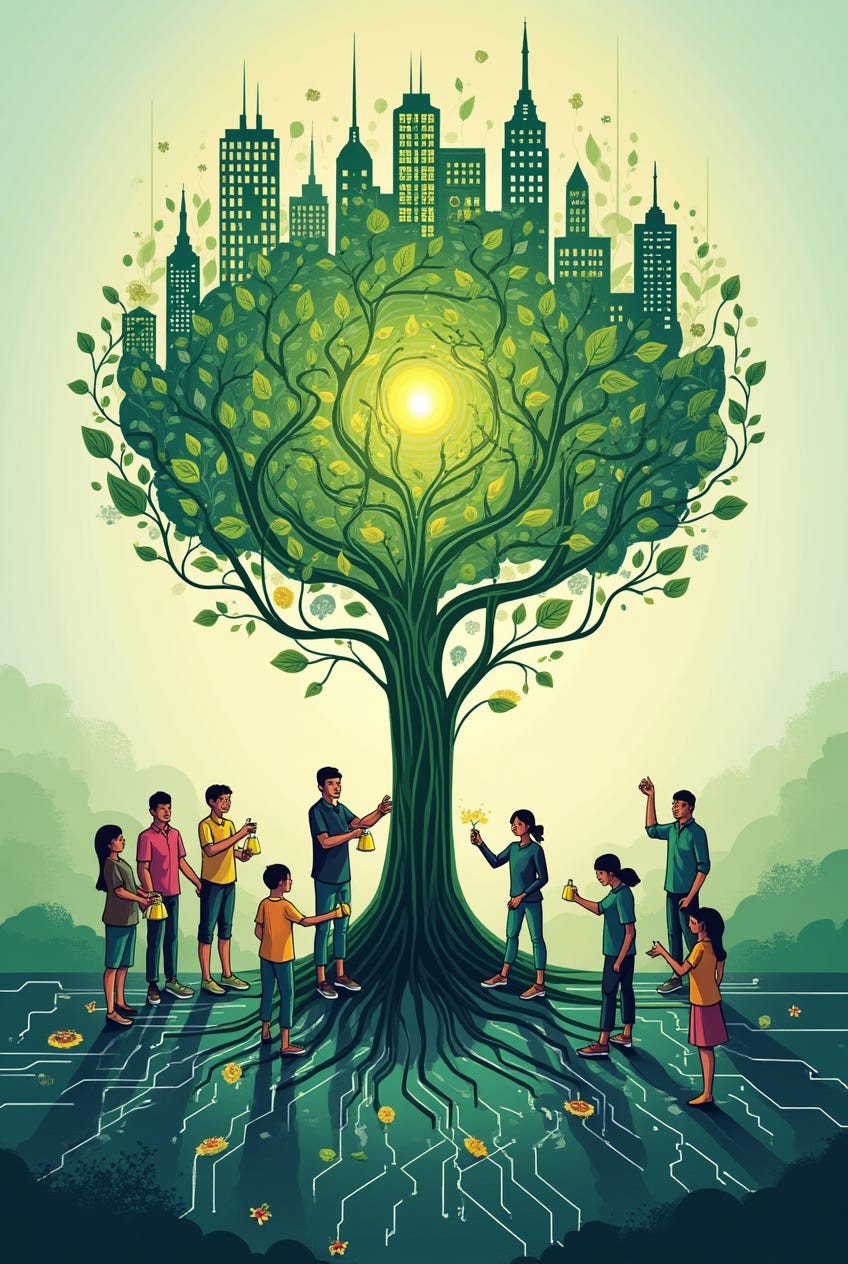Three Years In: What I've Learned on the Startup Marathon
After three years of building my startup, here are the lessons I'd share with my past self—and the 'mistakes' I'd gladly make all over again.
Three years. One thousand and ninety-five days. That's how long I've been on this incredible, chaotic, and deeply rewarding journey of building my startup, Plan & Publish1 . In the fast-paced world of entrepreneurship, where headlines are dominated by overnight successes and billion-dollar valuations, just showing up every day can feel like a victory in itself. And it is. I've come to believe that the true measure of success isn't found in hitting arbitrary targets, but in the lessons learned and the growth experienced along the way. The journey is the destination.
But reflection is a powerful tool. Looking back doesn't mean having regrets; it means gaining wisdom. If I could rewind the clock and stand at the starting line again, there are a few things I would do differently, and a few "mistakes" I would wholeheartedly make all over again.
What I'd Do Differently: Lessons from the Trenches
Craft the Story Before the Code. I was incredibly fortunate to find a great angel investor who believed in the vision early on. However, my first instinct was to build, build, build. Looking back, I would have started with the pitch deck. Not just as a fundraising tool, but as a north star. Forcing yourself to articulate the problem, the solution, the market, and the vision on a few slides is the ultimate test of clarity. It solidifies the "why" before you get lost in the "how." I'd then revisit that deck every quarter, tracking our evolution, celebrating pivots, and preserving the old versions as a storybook of our journey.
Shout Your Idea from the Rooftops. There's a common fear among first-time founders that someone will steal their brilliant idea. I've learned that an idea, in isolation, has little value. Execution and community are everything. I would have been loud and public from day one. I wouldn't have just sought feedback; I would have invited a community to build with us. Letting the people you aim to serve shape the product isn't just about validation—it's about building something that people genuinely need and love.
Build a Framework for Success with OKRs. In the early days, passion fuels everything. But passion without direction can lead to burnout and wasted effort. I would have implemented Objectives and Key Results2 (OKRs) from the very beginning. By setting clear, ambitious goals from the top down and ensuring every task contributes to those key results, you create a culture of focus and accountability. It transforms a scattered team into a unified force moving in the same direction.
The "Mistakes" I'd Gladly Make Again
I call these "mistakes" only because the final chapter of our story hasn't been written yet. They were unconventional, risky decisions that many would advise against, but they have been fundamental to our progress.
Delegate to Accelerate. From the start, I made the call to engage as many full-time developers3 as we could afford, rather than trying to code everything myself. It's a humbling process to accept that someone else might not execute a task exactly as you would. But I would do it again in a heartbeat. It allowed me to focus on strategy, vision, and growth, while multiplying our development capacity.
Think Big, Always. My vision has always been audacious. Instead of shrinking the dream to fit my personal capacity, I chose to find people who could help build it. This meant accepting that delegation sometimes leads to outcomes that are different, or even "worse" in the short term, than if I had done it myself. But thinking big is a non-negotiable. It’s what attracts talent, inspires a team, and pushes you beyond your limits.
Prioritize Quality and Scalability from Day One. The mantra "move fast and break things" has its place, but not at the expense of a solid foundation. We made the conscious decision not to sacrifice quality for speed. We built for the company we wanted to become, not just the company we were. This meant thinking about scalable architecture and robust systems from the outset. It may have slowed us down initially, but it's the bedrock that allows us to build higher and faster today.
The entrepreneurial path is not a straight line. It's a winding road of triumphs, setbacks, and invaluable lessons. After three years, I'm more convinced than ever that the real prize isn't some far-off destination, but the strength, wisdom, and resilience you gain with every step you take.
Plan & Publis is a code-free app creation platform.
Thanks to Vishen Lakhiani for this incredible speech.
Thanks to Yaama Tech, that made is possible.

